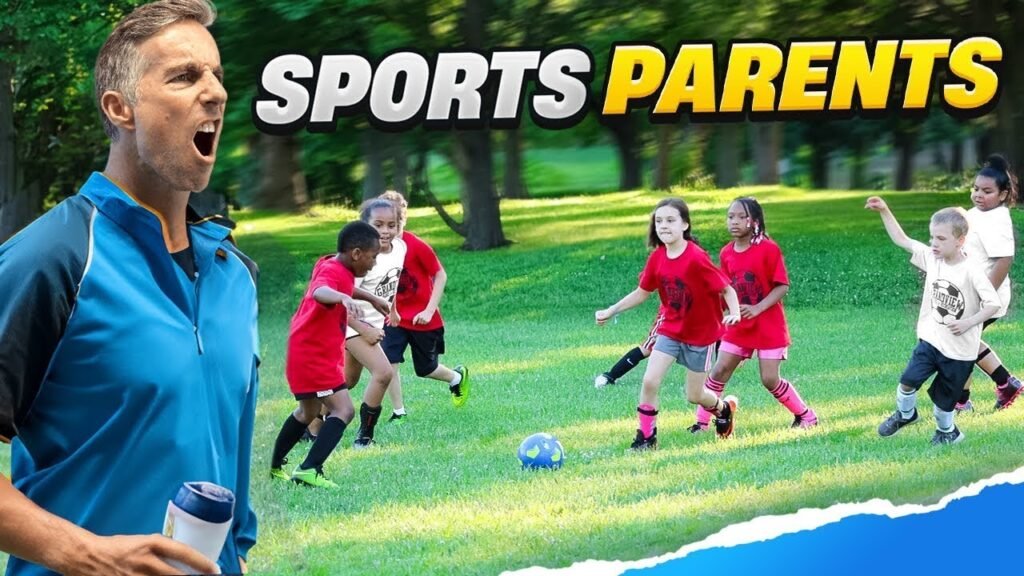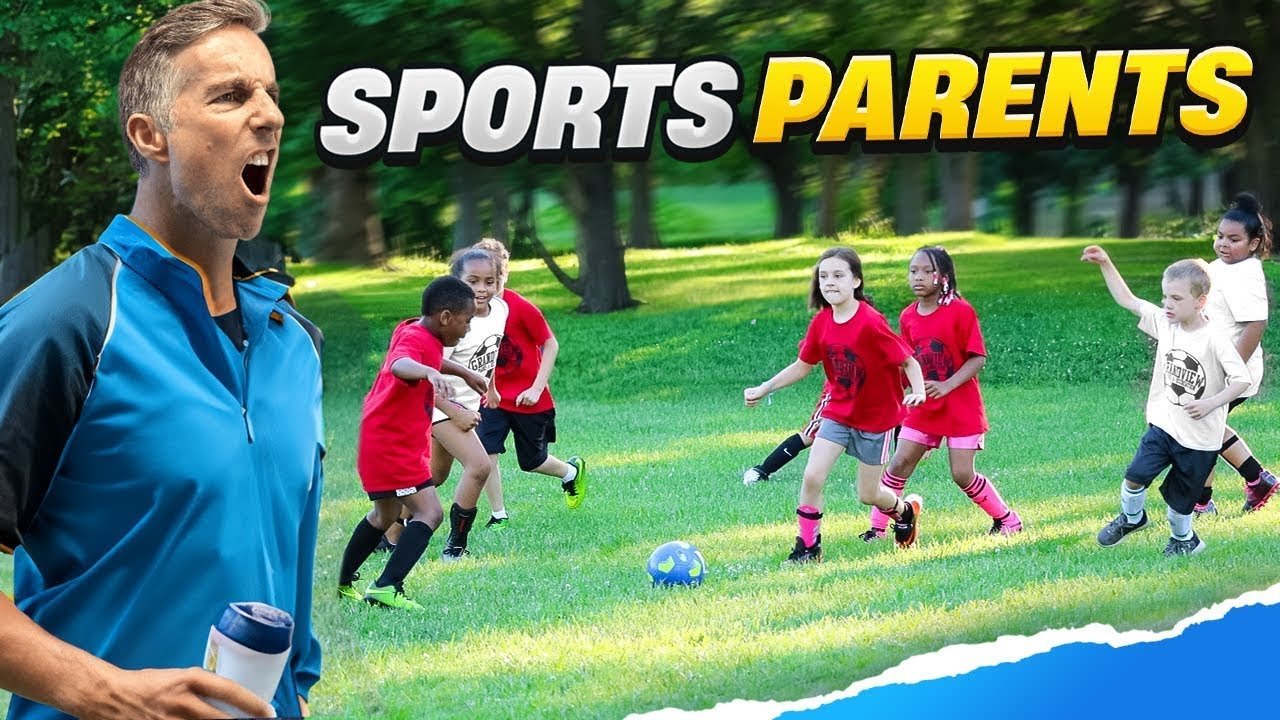Hey there! If you’re a parent of a young athlete or thinking about getting your child involved in sports, this video is a must-watch for you. Dad University is here to provide you with essential tips and advice on how to avoid common sports parenting mistakes that well-intentioned parents often make. We understand that as parents, our intentions are always good, but sometimes our methods may do more harm than good, affecting our children in a negative way and straining our relationship with them. In this video, we’ll cover mistakes such as living vicariously through your child, pushing too hard, comparing your child to others, using negative reinforcement, displaying poor sportsmanship, overloading them with activities, ignoring their fun and enjoyment, disregarding the coach’s authority, overemphasizing winning, micromanaging their performance, lacking balance in their life, and setting unrealistic expectations. Remember, it’s important to prioritize your child’s well-being, enjoyment, and personal growth in their sports journey. We’d love to hear from you in the comments section about your experiences and thoughts. Did your sports parents make any of these mistakes? What would you have wanted them to do differently? So go ahead, watch the video, and let’s start avoiding those sports parenting mistakes together!
Living Vicariously
Being a sports parent is an exciting journey, as you support and encourage your young athlete in their chosen sport. However, it’s important to remember that this journey belongs to your child, not you. One common mistake that sports parents often make is living vicariously through their child’s athletic journey. This means pushing your child to excel in a sport because you were an athlete yourself or because you have unfulfilled dreams.
It’s crucial to allow your child to choose their own path and interests. Respect their individuality and let them explore different sports to find what they truly enjoy. By imposing your own dreams on them, you may unintentionally place unnecessary pressure and expectations on your child. Give them the freedom to discover their own passions without overshadowing them with your own aspirations.
Pushing Too Hard
As a sports parent, it’s natural to want your child to improve and succeed in their chosen sport. However, pushing them too hard can have negative consequences. Finding the right balance between pushing for improvement and allowing your child to enjoy the sport is essential.
Pushing your child too hard can lead to burnout, stress, and resentment. Remember that sports should be a source of enjoyment and personal growth for your child. Encourage them to always do their best, but also ensure that they have time to relax and have fun. It’s important to understand that your child’s athletic journey is not just about achieving results, but also about the overall experience and development.
Comparisons with Others
Comparing your child’s performance to others can be detrimental to their self-esteem and motivation. Each child develops at their own pace, and it’s crucial to focus on their personal progress rather than how they measure up to others.
Instead of comparing your child to their peers, celebrate their individual achievements and milestones. Encourage them to set personal goals and track their improvement over time. By emphasizing their own progress, they will be motivated to work hard and enjoy the sport without feeling the unnecessary pressure of comparison.

Negative Reinforcement
Using negative reinforcement, such as criticism, judgment, or punishment, to try to improve your child’s performance is not effective or healthy for their development. Negative reinforcement can damage their self-confidence and create a negative association with the sport.
Instead, focus on positive reinforcement by providing constructive feedback and encouragement. Praise your child’s efforts, highlight their strengths, and offer guidance for improvement. By creating a positive and supportive environment, your child will feel motivated and confident in their abilities.
Poor Sportsmanship
As a sports parent, it’s important to be a positive role model for your child. Poor sportsmanship, such as arguing with referees, berating the opposing team, or displaying frustration openly, sets a negative example for your child.
Teach your child the values of respect, fair play, and good sportsmanship. Encourage them to treat their opponents, referees, and teammates with respect and kindness. By modeling positive behavior, you are instilling important life lessons that go beyond the field or court.
Overloading with Activities
Enrolling your child in multiple sports and activities may seem beneficial, but it can lead to exhaustion and limited time for rest and relaxation. While it’s great to encourage your child’s interests and passions, it’s important to prioritize their well-being.
Consider the importance of breaks and off-seasons for your child’s growth and development. Even if they enjoy participating in multiple activities, be mindful of their physical and mental well-being. Allow them time to rest and recharge, as this will ultimately benefit their overall performance and enjoyment of sports.
Ignoring Fun and Enjoyment
Remember that sports, especially youth sports, should be enjoyable for your child. If they are not having fun, it defeats the purpose of their participation.
Ensure that your child genuinely enjoys the sport they are participating in. While young children sometimes need guidance and encouragement, try to focus on the fun and enjoyment factor. Foster a positive and enthusiastic environment that allows your child to truly enjoy their athletic journey.
Ignoring the Coach’s Authority
Respecting your child’s coach and their expertise is crucial in creating a supportive environment for your young athlete. Constantly challenging or undermining the coach can create confusion for your child and hinder their development.
Trust that the coach has your child’s best interests at heart and understands their capabilities and potential. If you have concerns or questions, it’s always best to address them in a respectful and constructive manner. Remember that the coach plays an integral role in your child’s sports journey and their authority should be acknowledged.
Overemphasis on Winning
While winning is a natural part of competitive sports, placing excessive emphasis on it can lead to negative experiences for your child. Rather than solely focusing on winning, emphasize effort, improvement, and skill development.
Teach your child the value of hard work, perseverance, and resilience. Help them understand that losing is a part of the process and can provide valuable lessons in handling defeat with grace and sportsmanship. By shifting the focus from winning to personal growth and development, you will instill important life skills that extend beyond the world of sports.
Conclusion
As a sports parent, it’s essential to approach your child’s athletic journey with a supportive and balanced mindset. Remember that their sports journey is for them, not you. Avoid these common mistakes – living vicariously through your child, pushing too hard, comparing them to others, using negative reinforcement, displaying poor sportsmanship, overloading them with activities, ignoring their enjoyment, undermining the coach’s authority, overemphasizing winning, lacking balance, and setting unrealistic expectations.
Instead, prioritize your child’s well-being, enjoyment, and personal growth. Celebrate their individual progress, support them in their endeavors, and create a positive and supportive environment both on and off the field or court. By avoiding these mistakes and fostering a healthy sports-parenting relationship, you will help your young athlete thrive and have a fulfilling sports experience.

